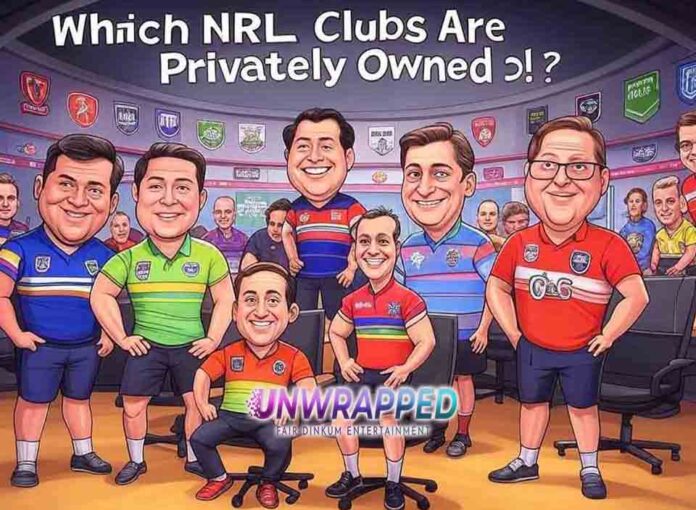The National Rugby League (NRL), Australia’s premier rugby league competition, comprises a diverse array of clubs with varying ownership structures. While some teams operate under traditional member-based models, others have embraced private ownership to enhance financial stability and competitive edge. This article delves into the privately owned NRL clubs, exploring their ownership dynamics and the implications for the league.
Understanding NRL Club Ownership Structures
Before identifying the privately owned clubs, it’s essential to comprehend the primary ownership models within the NRL:
- Member-Owned Clubs: These clubs are owned collectively by their members, who often have voting rights and a say in significant decisions.
- Privately Owned Clubs: These are owned by individuals, corporations, or consortiums, providing financial backing and strategic direction.
- Publicly Listed Clubs: A unique model where the club’s shares are traded publicly on the stock market.
List of Privately Owned NRL Clubs
As of the latest available information, the following NRL clubs are privately owned:
1. Brisbane Broncos
The Brisbane Broncos stand out as the only publicly listed NRL club, with shares traded on the Australian Securities Exchange (ASX). This structure allows public investors to own a stake in the club. The majority shareholder is News Corp Australia, holding a significant portion of the shares.
2. Gold Coast Titans
The Gold Coast Titans have experienced various ownership changes. In recent years, a consortium led by local businessmen acquired the club, aiming to strengthen its financial position and on-field performance.
3. Melbourne Storm
The Melbourne Storm is owned by the Holding M.S. Australia Pty Ltd, a consortium that took over the club to provide financial stability and support its operations in the AFL-dominated region of Victoria.
4. Newcastle Knights
The Newcastle Knights transitioned to private ownership when the Wests Group, a local community-based organization, took control. This move aimed to secure the club’s financial future and deepen its community ties.
5. New Zealand Warriors
The New Zealand Warriors are privately owned by Autex Industries, a New Zealand-based company. The ownership aims to promote rugby league’s growth in New Zealand and enhance the club’s competitiveness in the NRL.
6. South Sydney Rabbitohs
The South Sydney Rabbitohs underwent a significant transformation in 2006 when actor Russell Crowe and businessman Peter Holmes à Court purchased a 75% stake in the club. This move was pivotal in revitalizing the club’s fortunes, leading to a premiership win in 2014. nine.com.au
Implications of Private Ownership in the NRL
Private ownership in the NRL brings several advantages and challenges:
Advantages:
- Financial Investment: Private owners can inject substantial capital, facilitating player acquisitions, facility upgrades, and overall club development.
- Strategic Direction: Owners often bring business acumen, providing strategic leadership and innovative approaches to club management.
Challenges:
- Profit Motive: The pursuit of profitability might sometimes conflict with the club’s cultural or community values.
- Decision-Making: Centralized decision-making can sideline traditional member involvement, potentially leading to discontent among long-standing supporters.
External High Authority Links
For more detailed insights into NRL club ownership and related developments, consider exploring the following resources:
Conclusion
Private ownership has become an integral part of the NRL’s landscape, offering clubs the financial backing and strategic direction needed in the modern sporting environment. While it presents opportunities for growth and success, it also necessitates a balance to maintain the rich traditions and community connections that define rugby league in Australia.
Call to Action
Stay informed about the latest developments in the NRL by following official club announcements and reputable sports news outlets. Engage with your favorite teams through memberships and support their initiatives to ensure the continued growth and success of rugby league.











